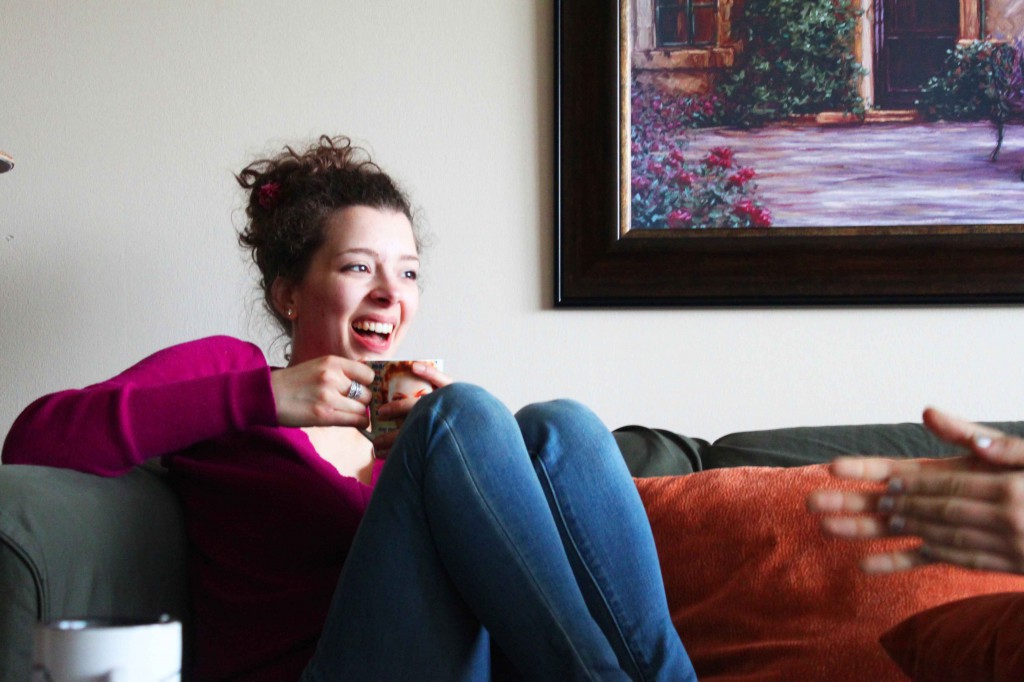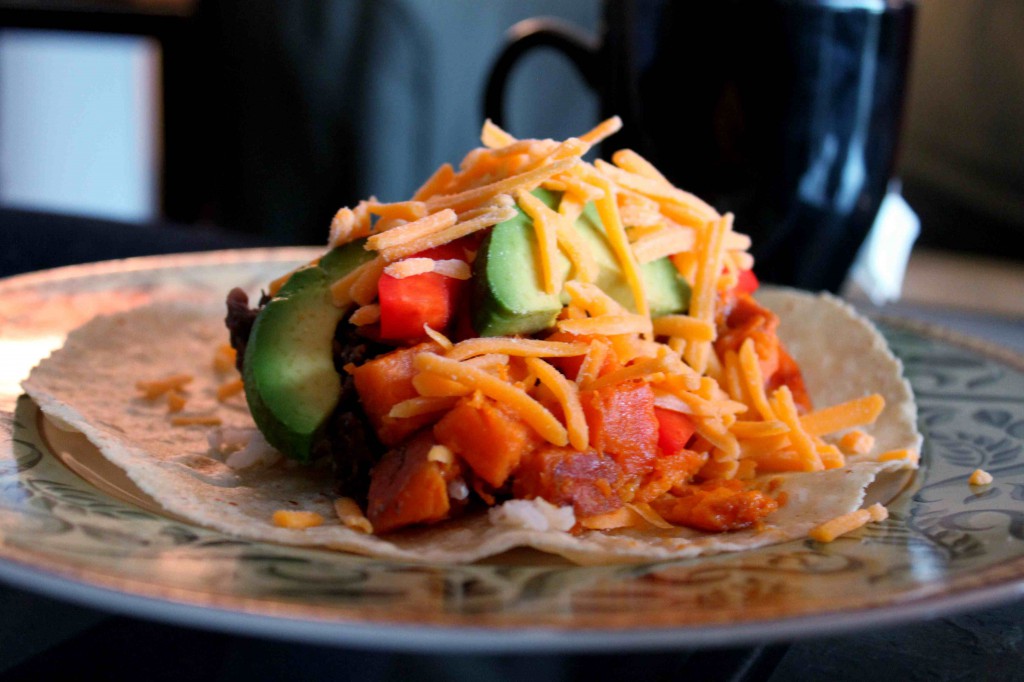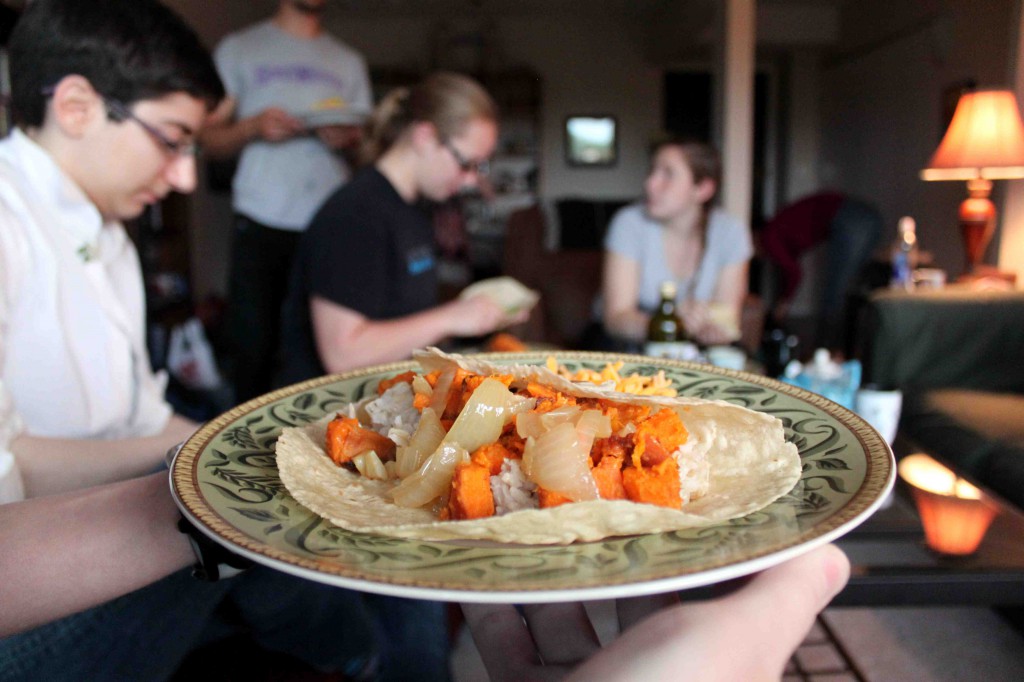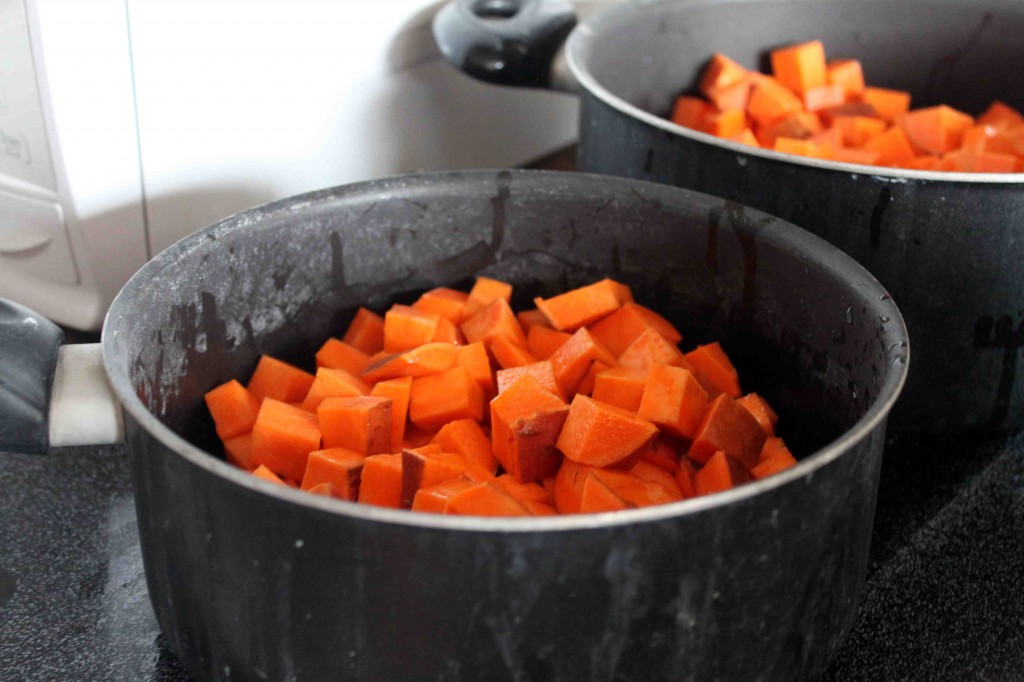As I continue to interview peers for Spoon’s “Student Spotlight” feature, I’d like to introduce our readers to my own food community. Each Tuesday evening, friends gather at the apartment I share to cook, eat, and converse. The group changes a little each week based on our schedules, but many people are regular attendees. As we cook, I ask them why communal eating is important, and the interview is full of laughter and friends finishing each other’s sentences.
I spoke with Dani Alcorn (Comm ’13), Mike Hawes (Bienen ’13), Mike Jastram (McCormick ’13), Stephanie Kahn (Weinberg ’14), Zoe Palmer (Weinberg ’14), Ethan Romba (McCormick ’13), Tori Romba (SESP ’13), and Violet Zerbe (SESP ’13).
How did this group get started?
Dani explains that the dinners began in the fall “because Charlotte [Ohl] came over and we would make pie every Tuesday, and then it turned into dinner because you want to have something before your pie, and it just sort of snowballed.”
Although a core group of the diners met while working on a play together last year, others are more recent acquaintances. Many of us did not know each other well before the dinners began; it has been through these gatherings that we have become close.
What’s important about setting aside time to eat together?
Mike Jastram says, “It’s the only time in my week where it’s what, three or four hours where I’m not trying to do homework.”
Ethan adds, “And it’s also a gathering of the minds, too–we don’t go without some sort of deep intellectual conversation.”

Tori Romba (Photo by Christina Cala)
We begin to talk about what makes this conversational group different than other discussion opportunities at NU, and consider the idea that it may be the lack of association with a particular cause, as well as the mix of backgrounds represented, that allows intense but friendly debate. Unlike a group affiliated with a specific social cause, religion, or even academic field, the diners can debate questions on such divisive topics as current political issues or a proper basis for ethics without feeling that a certain “party line” must ultimately be upheld. In addition, Stephanie believes “we get to the really intense conversations because we’ve been… warming up while we cook.” Cooking and eating together fosters a safe space, in which the members of this group feel comfortable working through our own beliefs and opinions out loud. Tori adds that it is refreshing to take part in a communal conversation that is not “mediated by technology,” as public interactions so often are.
Focus on Food:
There are three key features to the Tuesday Night Dinner approach to food. Cooking here is accommodating, adventurous, and collaborative.

Sweet Potato Burrito (Photo by Christina Cala)
We challenge ourselves to cook a meal that will satisfy the food needs of the entire group. That means accommodating a variety of food allergies and dietary choices. It is an exciting challenge, and it has made us smarter cooks. Dani speaks for much of the group when she says that were it not for Aleah Papes, a frequent attendee, she would never have learned anything about vegan cooking, but now frequently researches recipes and substitutions in preparation for each week’s dinner.
This sense of experimentation extends to a variety of culinary endeavors, creating our own recipes and learning about different cuisines. After I met Jessica Gottesman, we made medieval fruit pancakes one week. Mike Hawes says, “It inspires me to be more creative with my eating.”
Tuesday Night Dinners are collaborative. Each person contributes an ingredient to the meal. Then, we cook together. We get high-quality food at relatively low individual cost, and share the work that goes into making it.

Photo by Christina Cala
As Zoe puts it, “We’re taking time to make this food, and we’re putting the same kind of effort into conversing.”
Violet adds, “We’re getting better nutrition into our bodies and we’re getting better friendships out of our time spent.”
Check out our upcoming print magazine for more on Mike Jastram and Violet Zerbe’s adventures cooking in a dorm kitchen.

